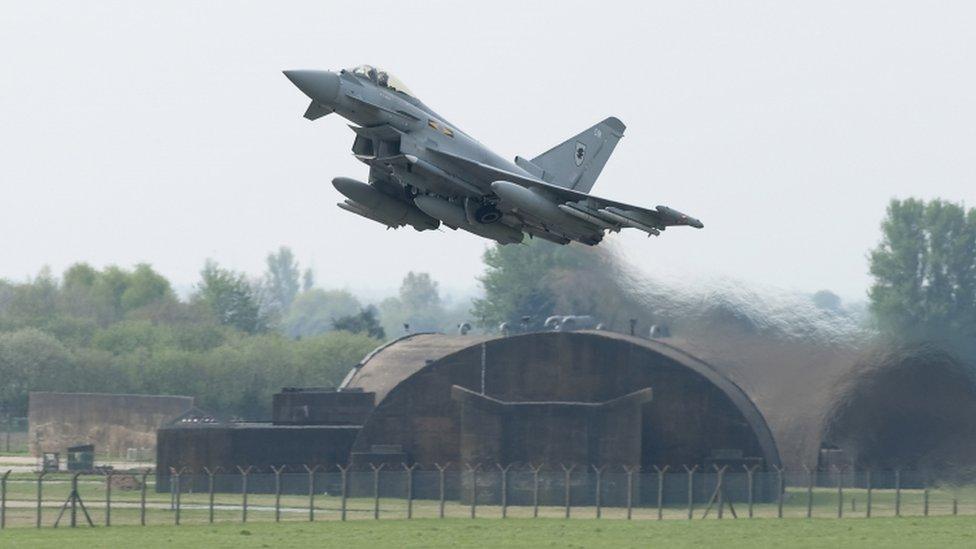Jeremy Corbyn discusses Nato comments with Nia Griffith
- Published
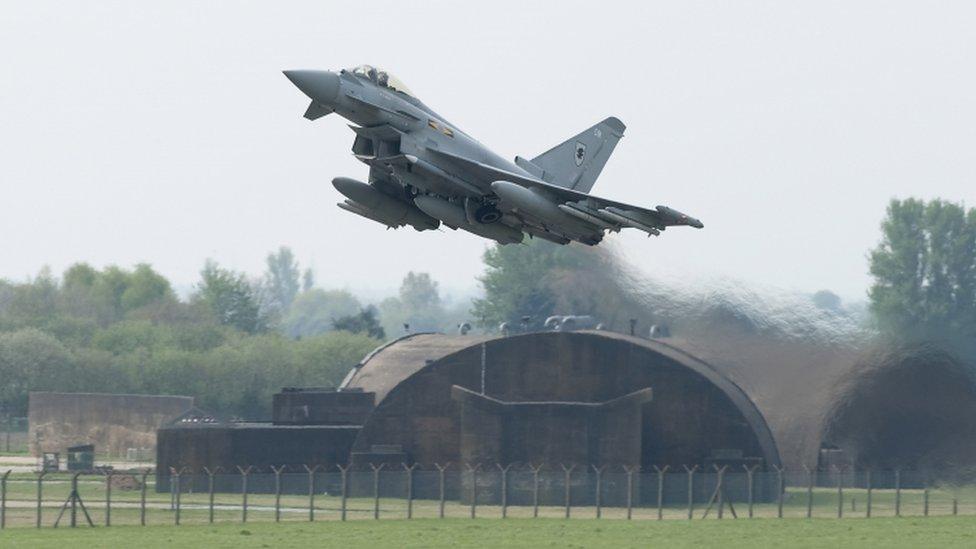
RAF Typhoons have been deployed to the Baltic region each year since May 2014
Jeremy Corbyn and his shadow defence secretary had a "friendly and constructive" meeting, Labour sources said, after a reported row over Nato.
Nia Griffith was said to be "livid" about reports that Mr Corbyn's spokesman had suggested Nato troops should be withdrawn from Estonia.
Hours earlier she had told Forces TV she backed the deployment.
Sources said she had been assured, in a meeting with the Labour leader, that his spokesman had not said that.
'Ratcheting up'
The spokesman did however refer to 'escalating tensions' on the Russia/Nato border and it is understood Ms Griffith did not welcome policy being made "on the hoof".
Five hundred UK troops are to go to Estonia as part of Nato's effort to deter Russia from any "aggression".
The UK has been building up its military presence in the Baltic region - sending RAF Typhoons since 2014 - following Russia's annexation of Crimea from Ukraine.
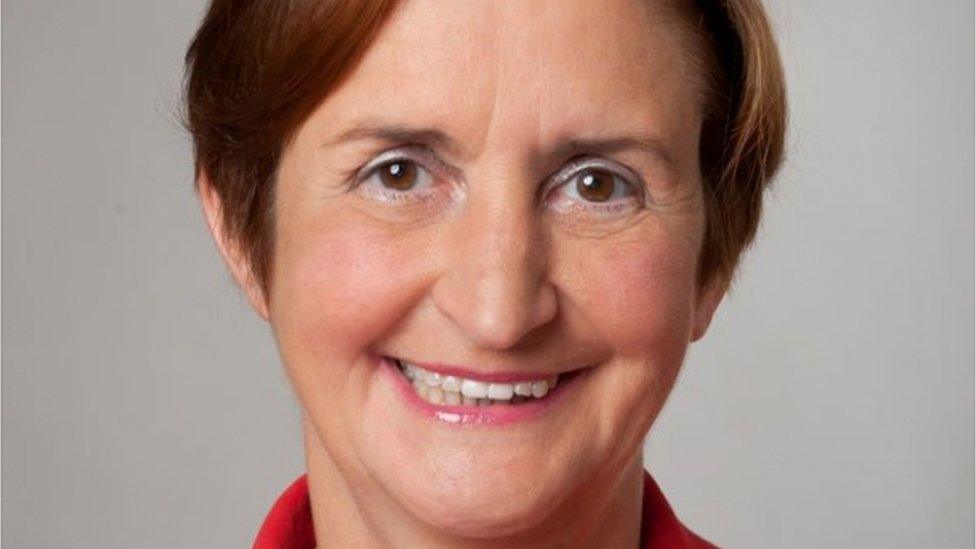
Nia Griffith has said it is important that the UK plays a "very strong role in Nato"
Questioned by reporters in Parliament on Wednesday, Mr Corbyn's spokesman said: "What we don't want to see is a ratcheting up of tensions between Russia and the West, as has been taking place. We want to see an engagement with Russia - on a critical basis, but a serious basis."
He added: "We've said repeatedly that we want talks and engagement to wind down military tensions, particularly on the Nato-Russian border and in the Middle East.
"Jeremy has expressed concerns about that being one of the escalations of tensions that have taken place."
BBC political correspondent Ben Wright said the Labour leader has not called for the withdrawal of British troops from Estonia, but it was clear Ms Griffith - and a number of other Labour MPs - were concerned about the leadership's approach to defence.
Prior to the comments, Llanelli MP Ms Griffith told Forces TV she thought it "very important that we now play a very strong role in Nato, particularly as we are leaving the European Union".
Nato had "to be absolutely clear, following what has happened in Ukraine, that we are standing together as Nato nations and there is no way that we would tolerate any attack on any one of our member states", she said.
Deployment imminent
"I think that's why it's so important that we have this partnership work now with the three Baltic states and Poland."
When questioned, a source close to Ms Griffiths said she was "absolutely furious" and "livid" about the intervention by Mr Corbyn's spokesman and that her support for Nato was a "red line".
Asked about the reports earlier on Thursday, Labour Leader Jeremy Corbyn said: "I had a chat with Nia briefly last night and we are having a longer discussion later on today."
He told BBC Wales he wanted to see a "de-escalation of tensions between Nato and Russia", adding: "I want to see a de-militarisation of the border between them. I'm sure everybody wants that, we don't want to see increased tensions."
The Labour leader said it was "unfortunate that troops have gone up to the border on both sides" and he wanted to see better relations between Russia, Nato and the EU. He said while he had "many criticisms" of Russia - its human rights record and of the bombing campaign in Syria - he said there had to be a relationship.
"I don't want to see any more troops deployed on the borders between Nato and Russia, I want to see a de-escalation, ultimately a de-militarisation and better relationships between both sides of it... there cannot be a return to a Cold War mentality."
In June 2015, RAF Typhoons, which have been deployed to the Baltic region each year since May 2014, were scrambled from Estonia to intercept and shadow two Russian military aircraft over the Baltic Sea.
The Ministry of Defence announced last July that 500 UK troops would be permanently based in Estonia, that number being increased to about 800 in October. They are set to be deployed soon.
Defence Secretary Sir Michael Fallon said the military build-up was intended to "deter Russia from any further aggression".
- Published8 July 2016
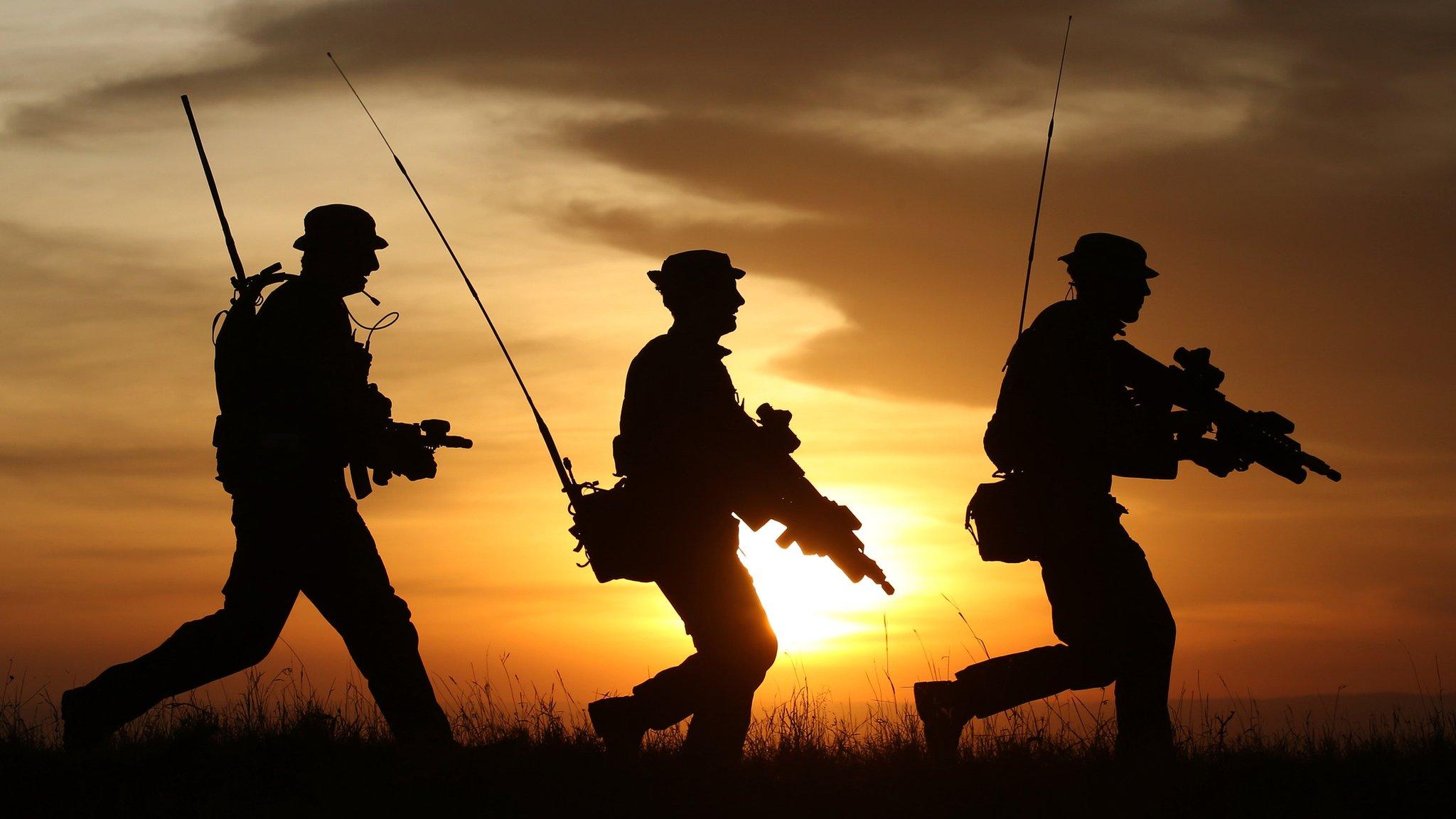
- Published8 July 2016
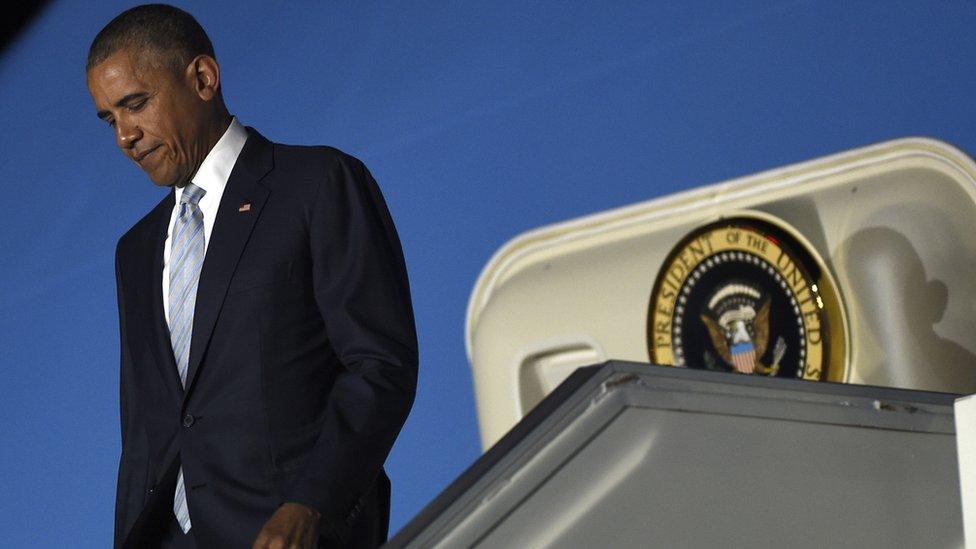
- Published8 July 2016
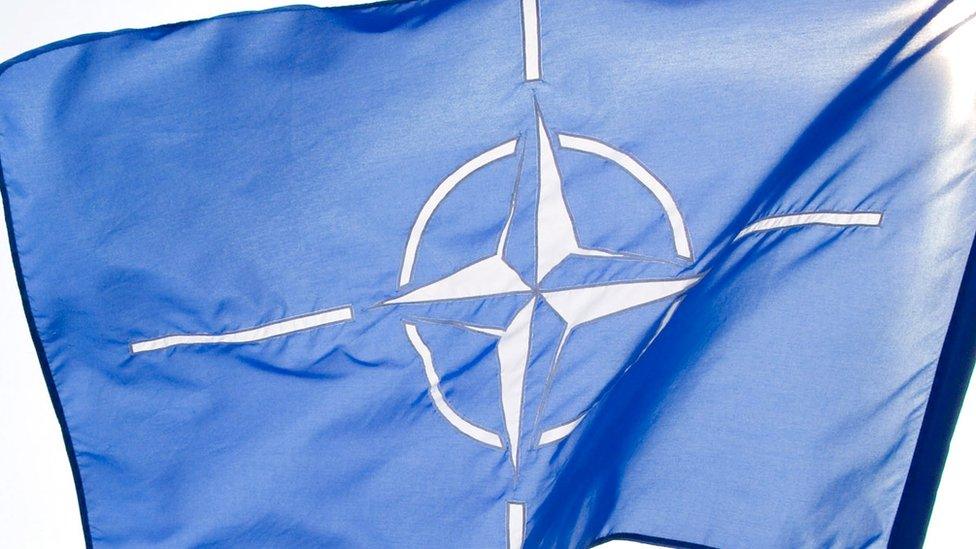
- Published8 October 2015
